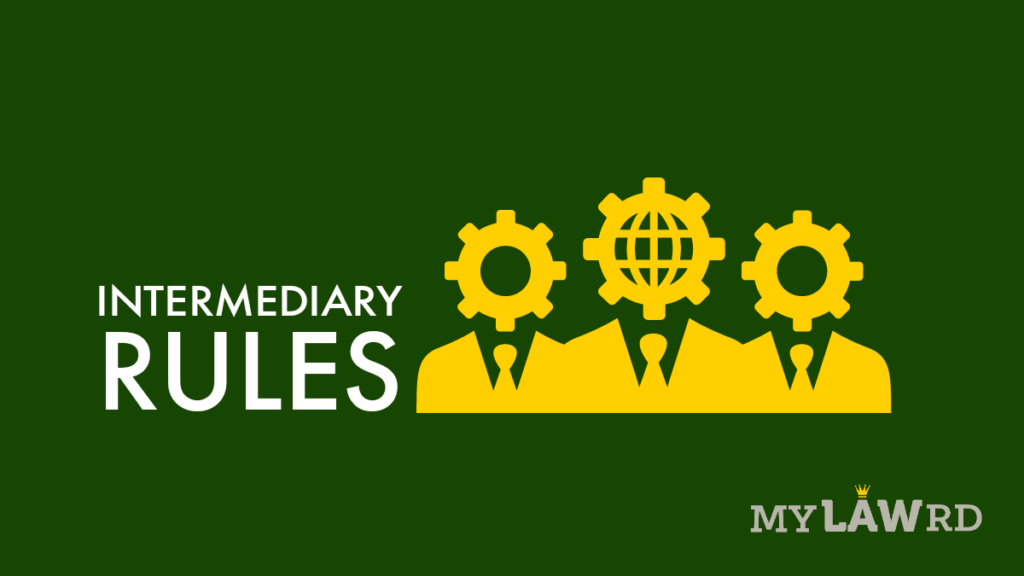The government has announced the new Information Technology (Guidelines for Intermediaries and Digital Media Ethics Code) Rules, 2021 (“intermediary and digital media rules”). A change was under deliberations to replace the decade-old 2011 rules since December 2018. The new guidelines address the expansive nature of the consumption of media through social media platforms. It even provides for the code of ethics and regulation for digital media to include online curated content providers and news publishers. So here are the six key takeaways from the new intermediary and digital media rules.
Recognition of LGBTQ communities
Following Navtej Singh Johar v. Union of India, the 2021 rules recognize the LGBTQ communities. Under the new rules, it is specifically mentioned that users should not host, display, upload, modify, publish, transmit, store, update or share any information that is insulting or harassing based on gender [Rule 3(b)(ii)]. Such a mention was absent in the 2011 rules. Moreover, an intermediary will have to take down content that violates any law; defamatory, obscene, pornographic, paedophilic, invasive of privacy, content related to money laundering or gambling; or otherwise, inconsistent with or contrary to the laws of India.
Addressing Fake news
Unlike 2011 rules, the 2021 rules include fake news too. Rule 3(b)(x) defines fake news as any information which is patently false and untrue and is written or published in any form, with the intent to mislead or harass a person, entity or agency for financial gain or to cause any injury to
any person
Annual intimation to users
In case of non-compliance of any rules and policies of the computer resource of the intermediary, the intermediary has the right to terminate the access or usage rights of the users to the computer resource immediately or remove non-compliant information or both, as the case may be. As per Rule 3(c), intermediaries shall periodically (or at least once a year) inform their users regarding this.
Due diligence regarding content
Disabling access to content:
On receipt of any court order of competent jurisdiction or being notified by the Government or its authorized agencies under the provision of Section 79(3)(b) of the IT Act, the intermediary has to disable access to any content or information which prohibited by any law in relation to the interests of the sovereignty and integrity of India within 36 hours of the receipt of such order [Rule 3(d)].
Disabling content based on a complaint by a user
In case of any non-consensual transmission of any content, which exposes private area of any person, shows such person in full or partial nudity or depicts such person in any sexual act or conduct, the intermediary has to disable access to any of such content with 24 hours of the receipt of complaint filed by the user. The intermediary shall also implement adequate mechanisms to receive complaints and also provide necessary details regarding such content or communication link [Rule 2(b)]
Retention of Information
The user information collected by the intermediary at the time of registration on the Platform shall be retained for 180 days after cancellation or withdrawal of the registration from the platform [Rule(3)(h)].
The intermediary also needs to, without vitiating any evidence, preserve any removed or disabled information records or associated record for 180 days for investigative purposes. A court order or any government authorized authority can increase this duration. [Rule(3)(g)]
Expeditious sharing of information with the government
On receipt of lawful order from the government authorities, the intermediary has to share information under its control or possession with the government. The information should be shared within 72 hours of the receipt of the order. The information includes information for the identification or any information to assist government agencies for crime prevention and investigation [Rule(3)(j)].
Grievance Redressal Mechanism
The new intermediary and digital media rules also require that an intermediary shall prominently publish the name and contact details of a Grievance Officer. Additionally, it shall also publish a grievance redressal mechanism using which a user can complain against violation of these rules. Such an officer would need to acknowledge the complaint within 24 hours and dispose off it within 15 days of receipt.
Additional Due Diligence for Significant social media
This is a new concept that the government has brought in. The Rules say that the Central Government will notify a platform as a significant social media intermediary based on the number of users. You can read more about significant social media intermediary due diligence here.
Importantly, the rules also talk about an OTT grievance redressal mechanism.
You can read about the rules here.
Do subscribe to our Telegram channel for more resources and discussions on tech-law. To receive weekly updates, and a massive monthly roundup, don’t forget to subscribe to our Newsletter.
You can also follow us on Instagram, Facebook, LinkedIn, and Twitter for frequent updates and news flashes about #technologylaw.

